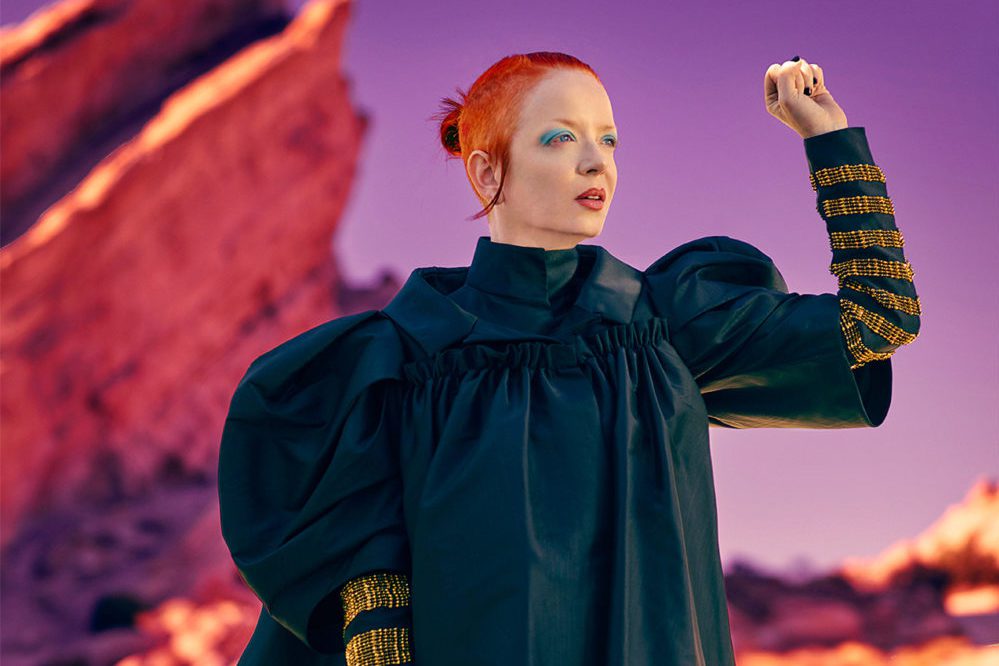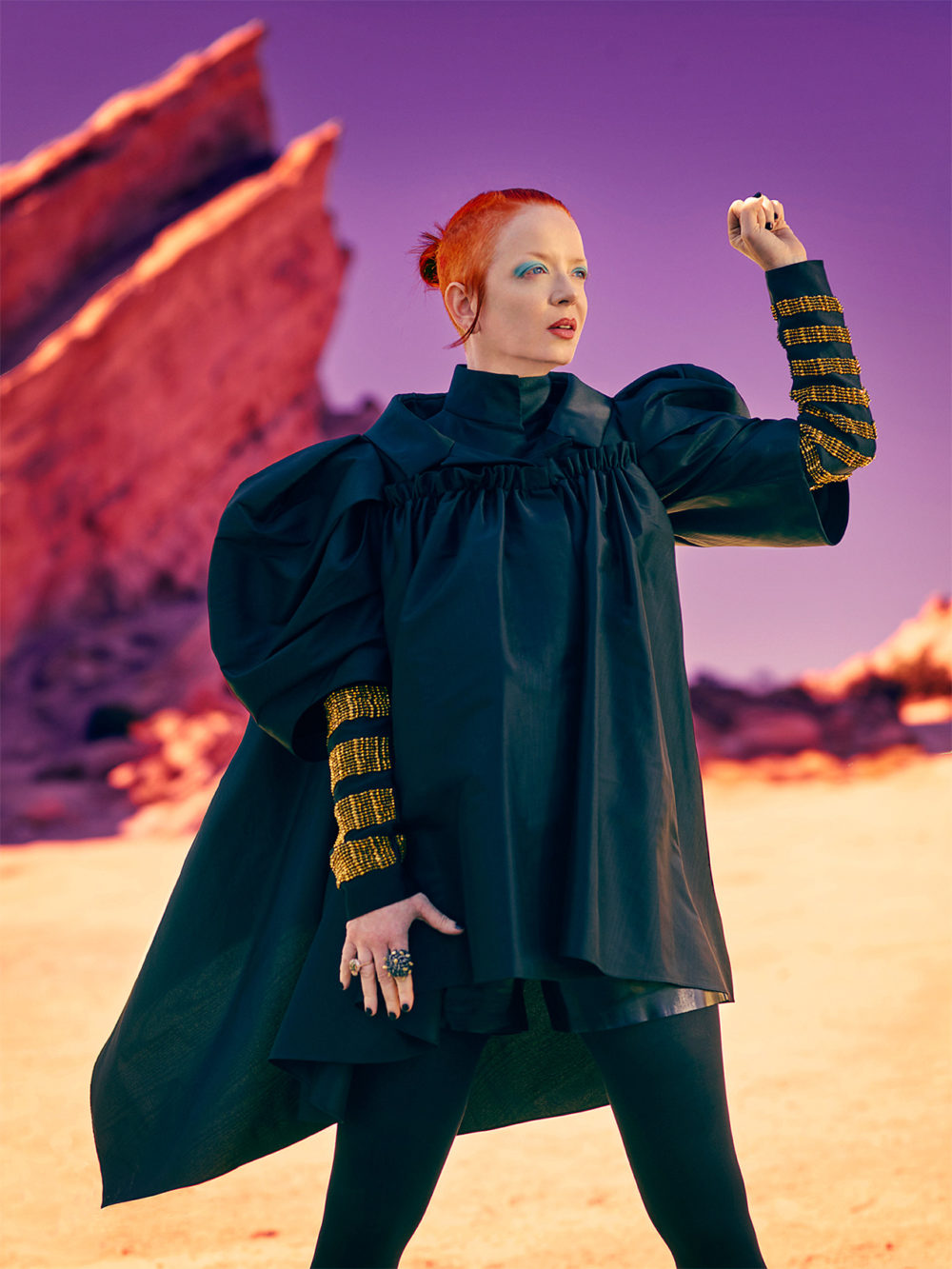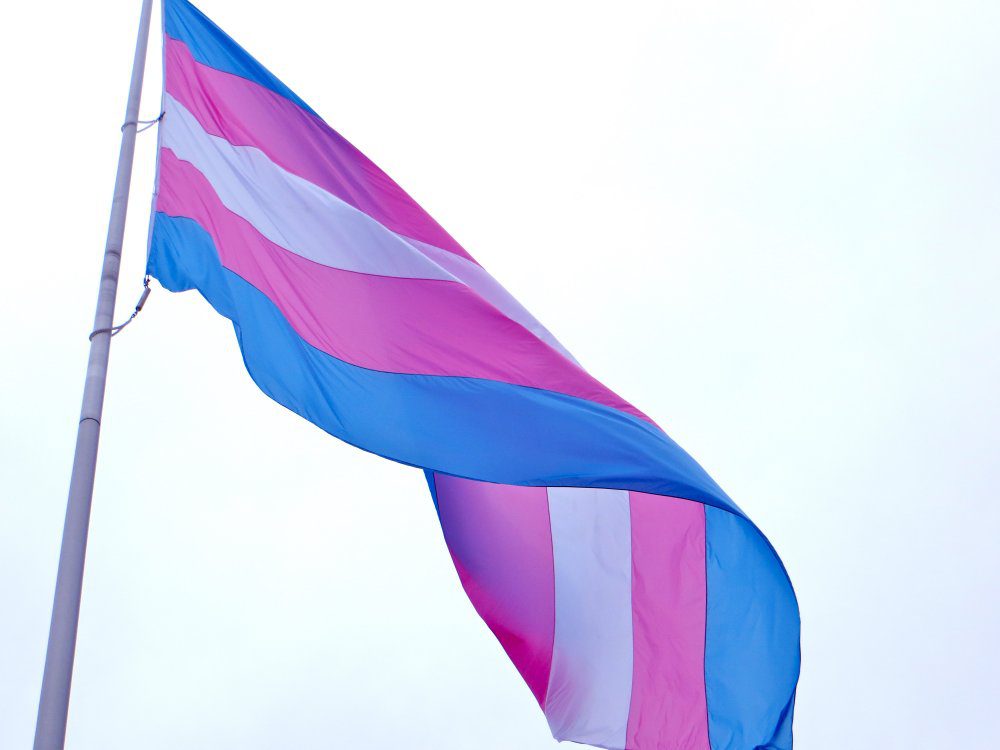
This year, Girls Rock Santa Barbara has developed The Summer of Love Internship, its first ever paid internship for teen girls and gender-expansive youth, which allows the organization to continue to provide a safe, collaborative environment in which to encourage lifelong skills like positive peer bonding and self-confident resilience. The internship, which lasts six weeks and pays each intern $500, offers six exciting and arts-focused disciplines: Record Label, Recording Artist, Social Media, Journalism, Photography, and Podcasting. Audiofemme is pleased to publish the following article, written by Julia Duva and Emma Hogarth, two interns from the Journalism program.

The second she joined our Zoom meeting, Shirley Manson (the bold and charismatic lead singer of Garbage) was all smiles and laughs. After having done a few interviews with a plethora of different artists for the Girls Rock Santa Barbara Internship, we approached this last one with confidence and ease, but Manson’s energy far surpassed what we had experienced up until that point. She ignored subtle attempts to start the interview off slowly and instead pushed us to genuinely answer her questions, likely a habit she’s picked up as the host of The Jump podcast, in which she interviews musicians about their career-defining songs. Its second season premieres this week, and features interviews with George Clinton, Liz Phair, Angel Olsen, Matt Berninger, and more.
Having been a musician for almost forty years, Shirley Manson has been asked practically everything about her career. However, in the nineties, when Garbage was at its peak popularity, Manson didn’t get to spend much time talking about one of the only passions of hers that might have surpassed music: feminism. So after the introductions and jokes about our current situation, we spent our time discussing sexism in the music industry, feminism in the nineties, her relationship with her bandmates, and changes brought on by the 21st century.
GRSB: When did you first consider yourself a feminist? Was it in the beginning of your career or was it further down the line?
SM: I discovered I was a feminist when I was really young, and I watched my father give my mother housekeeping money, and I was offended by that. My mom was the queen of our household – she basically did every single thing except go out and do a traditional job like my dad did, and that seemed like an imbalance to me and it pissed me off. I think there I realized, “Wow, the playing field is not what I hoped and thought it was.” A feminist was born that day. I think my indignance has developed over the course of a very long career at this point. I am old and I am still outraged!
GRSB: Other outspoken artists of the alternative era, like Alanis Morissette and Liz Phair, have been very open about the struggles of being female in the music industry in the 90s. What was your experience?
SM: I have managed to circumvent a lot of what I consider to be a system that is not necessarily rigged in women’s favor. I’ve had a long career because I am tough, and I have never felt that I am lesser than a dude, so when I am faced with sexism or misogyny, I am well-equipped to deal with it. I have had people ask if I was a prostitute. I was told that I work with three geniuses and I was the face of the “Garbage clock.” The list is endless. That is beginning to change, and I thank your generation for the changes that we are about to see. My generation was pretty quiet. You lot are like ‘Fuck you, you don’t get to touch me.’ In context with what we are seeing in this Civil Rights movement, I was dismayed to see that white feminism had left behind our Black, Brown and Indigenous sisters. The white feminist movement has its hands pretty dirty, and I want to see that change. That’s something I feel really passionate about. I see these changes occur in your generation, so that gives me great hope and makes me feel excited.
GRSB: Would you say that the music industry is becoming less aggressive, and an easier place for women to find a career?
SM: No. It’s a really tough industry, and particularly hard on women. We’ve got centuries of mindset to unpack, so we are all – men, women, and anyone in between the two binary pools – part of a system that does not benefit women, Indigenous peoples, Black peoples, gay peoples, trans peoples. It is changing, but we have got a long, long, long, road ahead of us all, unfortunately.
GRSB: It’s sad to think about all my favorite women artists, and how they maybe going through hardships in the industry due to their gender. One of my favorite artists nowadays is Lauren Mayberry from Chvrches. Is it inspiring to see someone like her carry feminism into the next generation?
SM: Don’t feel sad, get outraged. It’s something that can be tackled. The system wants you to be sad and sit back. Instead, we have to all push. Sadness is a very unhelpful emotion. I never want any young women, or any young people to feel dismay. There is so much out there for you all – this is an opportunity. So to see someone like Lauren Mayberry – who grew up in my country [Scotland], and has been so generous to me in the press – is so touching and I’m so proud of her. I love to see how she touches younger generations. It’s wonderful seeing Lauren setting peoples’ imaginations alight.
GRSB: Along with being an outspoken feminist, and a leader of the feminist movement, you are also often seen as an LGBTQIA+ icon by the queer community. What does it mean to you to garner such support from them?
SM: Our relationship with the LGBTQIA+ community has been enormously valuable to us. This binary system that we have been conditioned into believing is the only way forward for human beings has been incredibly restrictive, and as someone who doesn’t like being restricted – I don’t like rules, I don’t like being told what to do – I always saw that community as really brave, breaking all the boundaries and not allowing themselves to be caught in cages. I just fell in love with that freedom, that ideology of “I will be who I want to be and nobody is gonna tell me who I’m gonna love and how I think.” So I think I have just always felt at home in that community, and still do.
GRSB: Even though your band was sort of outspoken about these issues and in support of you, what was it like being a woman in an all male band? It seems like it could be a little alienating…
SM: (Laughs) As I flop to the floor and burst into tears, once again, I’ve never been asked that question. It has been fraught with some difficulties. I’ve continued to experience some of these difficulties just by the fact I work almost exclusively with men, and I am usually the only [woman] in the room. That can be very tough, very frustrating and it’s just something I’ve learned to live with. I certainly hold my own defenses, but it’s exhausting sometimes. But again, I knew what I was stepping into – the music industry is not for the faint of heart.
GRSB: You are currently in the studio putting the finishing touches on a new Garbage record. Before we go, can you tell us anything about the new record that we are dying to hear?
SM: It’s really good (laughs). Very aggressive, but it’s also much poppier than our last record [Strange Little Birds]. Our last record was kind of esoteric in a weird way and very ambiguous in many ways. This is not ambiguous at all. This is absolutely straight down the line, in your face, and I’m proud of it. I’m one of very few women in their 50s who manages to put out records with a band – I mean, you could count us on our digits at this point – so I want to impress that on every woman I ever speak to, every young woman I speak to: don’t get caught up in the bullshit about how you look. It’s what you do and how you conduct yourself in your life that’s important. Do some good work and when you’re in your 50s, still get to go on stage and have a fantastic life.
And just like that Shirley Manson, the spitfire feminist, vocalist, writer, and activist wishes us goodbye and leaves the call, ending the interview with one last bit of sharp-witted advice: “Stay safe and wear your fucking masks.”
Follow Garbage on Facebook for ongoing updates.


